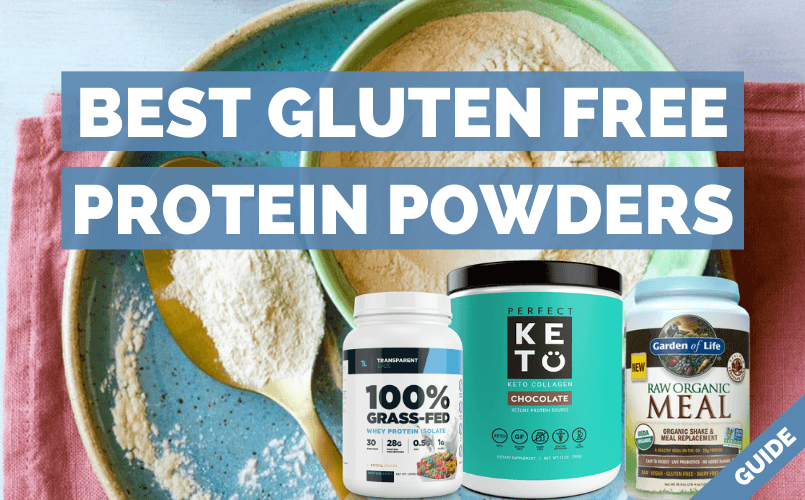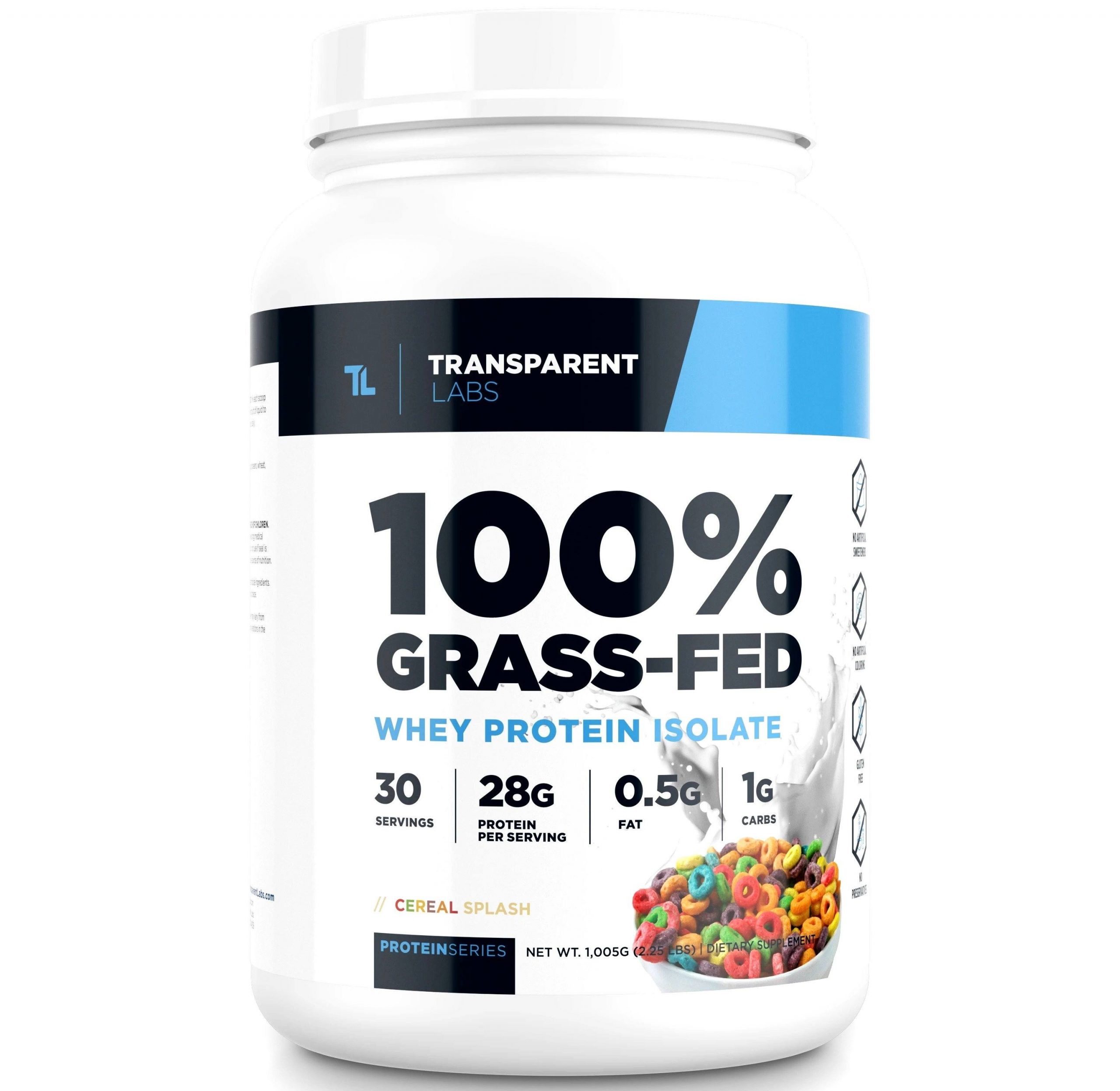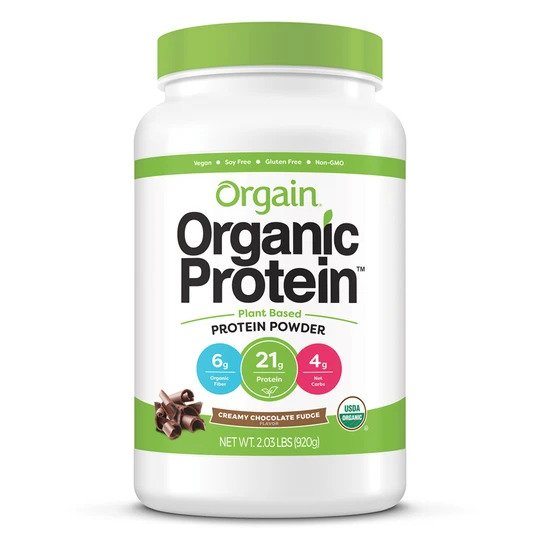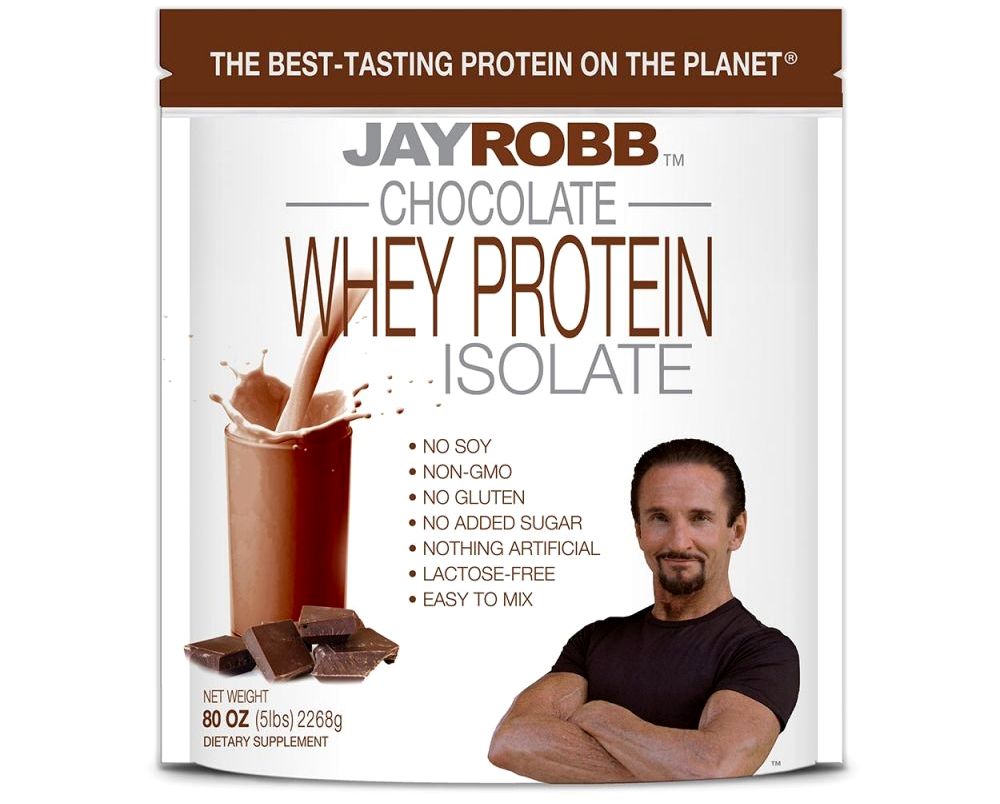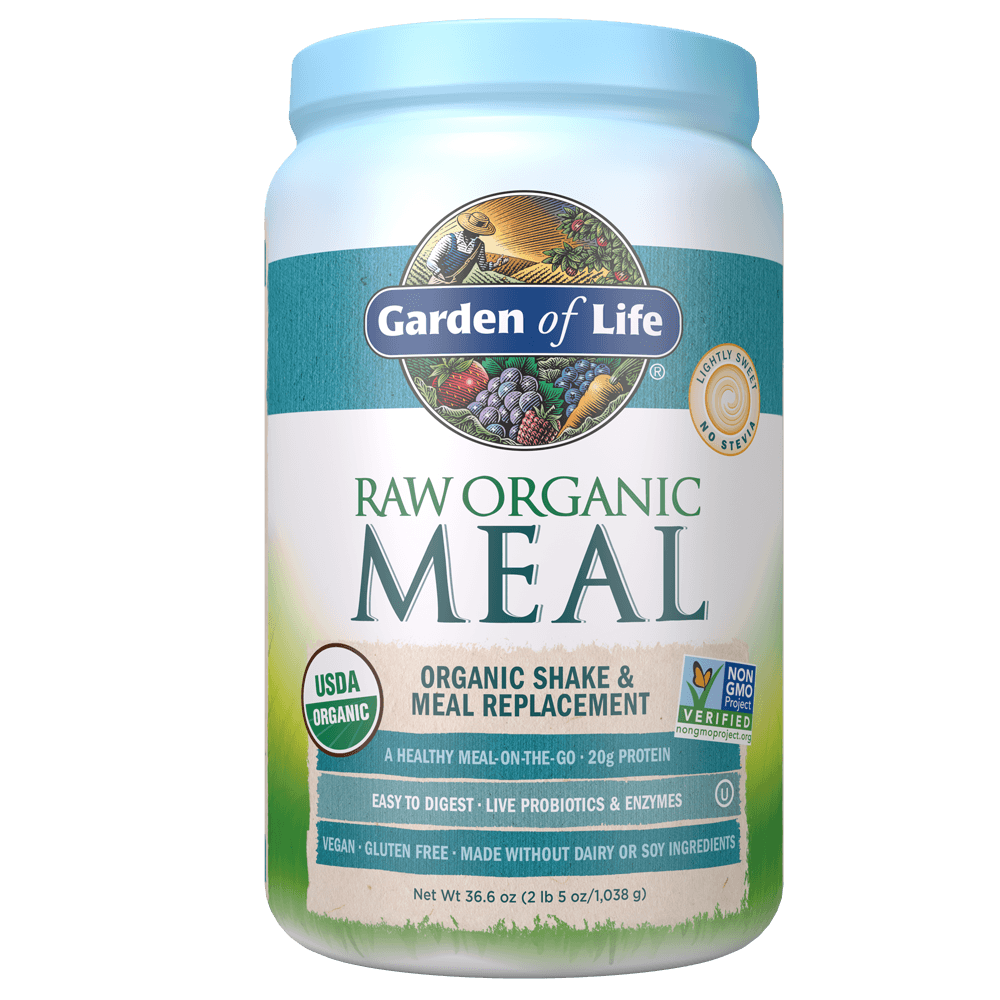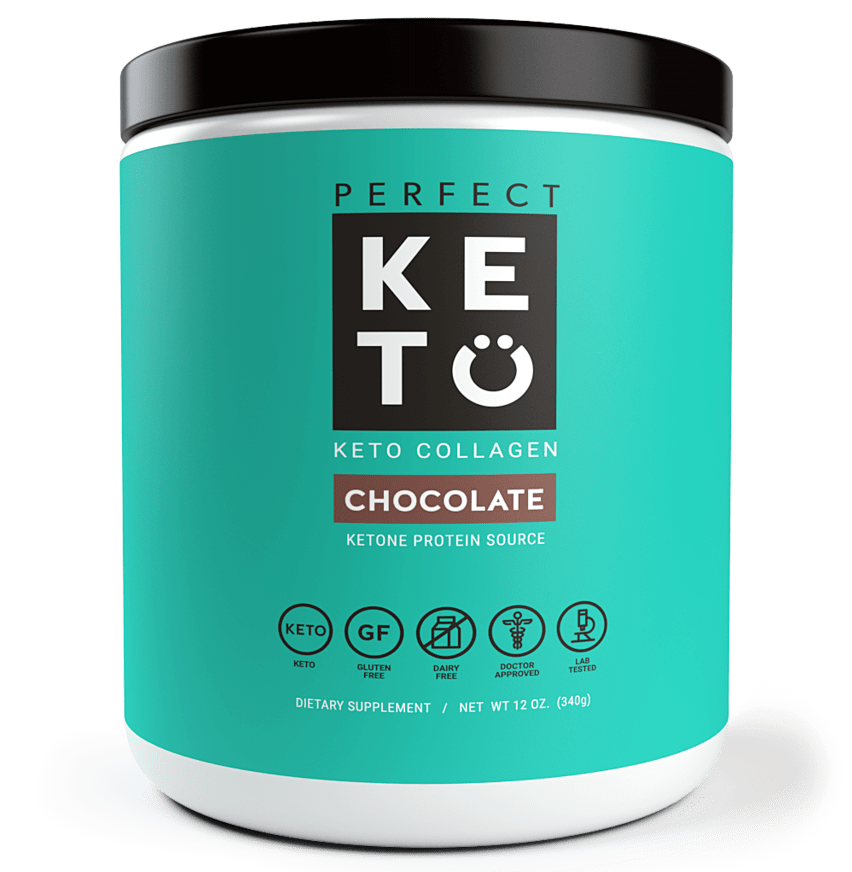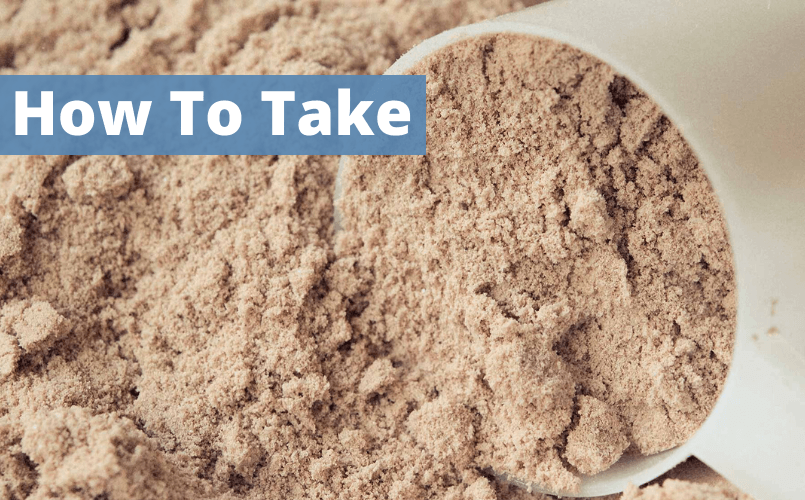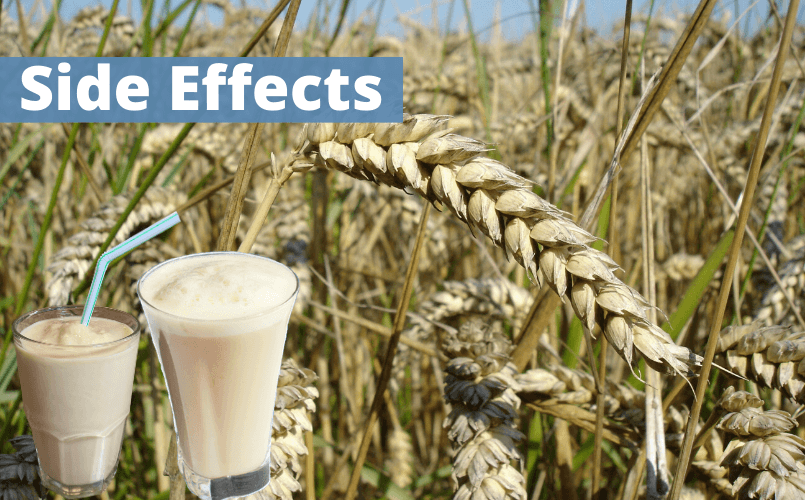Celiac disease and gluten intolerance is no laughing matter. If you suffer from these conditions, it might be difficult for you to determine which brands that claim to be gluten-free are actually bluffing.
And this is a rampant problem in any industry. Many products will claim to be certified for one thing when they really aren’t. Plus, they could also be hiding ingredients that are harmful to your health.
That’s why we took our time to review numerous brands and the best protein powder products that claim to be gluten-free. Made sure they’re really what they say they are and ranked them until we could pick out the five best gluten-free protein powders in the stores today.
Review Summary:
- 1. Transparent Labs 100% Grass-Fed – Best for Weight Loss & Muscle Gain
- 2. Orgain Organic
- 3. Jay Robb
- 4. Garden of Life Lightly Sweet Powder
- 5. Perfect Keto Collagen Peptides
Table of Contents
5 Best Gluten-Free Protein Powder (List for 2024) Guide
You may or may not be in it for fat loss or gaining muscle. Maybe you’re just trying to find an easy grab-and-go meal replacement that won’t leave you hungry after an hour.
Whatever reason you may have, there’s no reason why you can’t enjoy an added dose of complete protein and nutrients from protein powders just because you’re gluten intolerant.
Below, you’ll find five of the best gluten-free protein powders in the store. We’ve ranked them based on their benefits and overall value.
1. Transparent Labs 100% Grass-Fed Gluten-Free – Best for Weight Loss
This Transparent Labs all-natural whey protein isolate powder is the best choice at any angle. However, it is also the most recommended if you’re trying to lose weight. It’s high in terms of protein per serving yield, and it contains zero fat.
Here’s why you’ll like it:
Premium Quality Protein – this supplement yields 28 grams of protein per serving. That is marginally higher than average.
- High protein yield per serving (28 grams per serving)
- Gluten free
- non-GMO certified
- No artificial additives
- Zero fat content
- Low carb content
- Contains plenty of branched chain amino acids
- Only available in flavored options
Summary: Aside from the fact that it’s only available flavored, this best product delivers gluten free effective protein with only 1 gram of carbs per serving as well as zero fat content. It is non-GMO certified and delivers a high protein yield per serving.
.
2. Orgain Organic – Best Glute Free Vegan Protein Powder
Orgain Organic is one of the most nutrient-rich protein powders you’ll find in the market. More than that, it is rich in plant protein and is an ideal added protein source for any vegan or vegetarian. One of the best things about this protein powder (with flavors: chocolate peanut, strawberry banana) is that it undergoes a strict quality control process as well as follows dietary standards.
Here’s why you’ll like it:
All-Natural Goodness – aside from being produced in a certified vegan-friendly facility, this product is free from any artificial additives and is free from any modified organisms that are usually used to increase your protein sources.
- Easily mixes with any beverage
- Affordable
- Gluten free
- Rich in nutrients
- No sugar
- Turns chalky when overmixed
Summary : It is ideal if you want something that will be easily mixable. However, you must exercise caution since overmixing can turn it chalky. But aside from that, this blend of hemp and brown rice protein with chia seeds delivers an excellent protein yield as well as a host of other nutrients that your body will appreciate.
.
3. Jay Robb Whey Isolate Dairy Free – Good For Weight Gain
This whey protein isolate powder by Jay Robb is advertised as the best-tasting protein in the market. Now, normally I am skeptical of such claims, but after trying a dose of this, I can confidently say that it is among my top ten. This complete protein powder is ideal for anyone who wants to gain weight healthily.
Here’s why you’ll like it:
High Quality Protein – in addition to its great taste, this protein powder packs a good amount of protein with a full amino acid profile per serving. This is ideal for anyone who wants to gain some muscle mass so you can flaunt your guns.
- Tastes good
- Mixes easily
- Available in many flavor choices
- All-natural ingredients
- No preservatives
- Lactose free
- The stevia taste is quite overpowering
Summary: If you aren’t a fan of stevia, unfortunately, you may not grow to like this protein powder or Muscle Milk supplement unless you mix it into a complicated smoothie. But if you can move past that, this protein-rich whey isolate protein powder will deliver results fast, reliably and with no fuss.
.
4. Garden of Life Lightly Sweet Powder
For anyone who is looking for a certified meal replacement for those times you just need something you can grab on the go, Garden of Life creates a delicious organic protein powder. It’s delicious on its own or mixed into a variety of drink recipes to keep you on your toes.
Moreover, it’s also available in four flavor options that are ideal if you want something that tastes good on its own or when mixed into various beverages.
Here’s why you’ll like it:
Easy and Ideal Meal Replacement – this product yields 20 clean grams of pure plant protein that is organically-sourced. Moreover, it is combined with 44 superfoods to grant your daily nutrition needs as well as 6 grams of fiber to help with digestion and to prevent digestive distress.
Helps With Muscle Recovery – if you often engage in physical activities such as intense workouts or sports, this protein powder helps your muscles recover from the strain. It also helps your body build muscles more effectively, which is ideal for anyone who is serious about weightlifting.
- Contains 21 vitamins and minerals
- Contains probiotics
- Contains 44 superfoods
- High protein yield per serving (20 grams per serving)
- Contains dietary fibers
- Mixes easily
- Quite expensive
Summary: This protein powder is ideal if you want something that tastes great, provides great nutrients and is an excellent source of clean, plant-based protein. It might be a little bit on the more expensive side. However, the price is slightly justifiable by the quality of the product, easy mixability and great ingredients as well as a reliable quality assurance process that guarantees you have the right reliable product at all times.
.
5. Perfect Keto Collagen Peptides Protein Powder – Best for Women
Perfect Keto contains collagen peptides that are essential to glowing skin and a youthful, healthy appearance. Moreover, this protein powder packed with collagen peptides encourages better ligament and joint health, which helps with mobility and allows you to put your all into everything you do.
One of the most wonderful benefits of this product is that it makes your skin glow. It allows your nails, hair, and skin to be healthier, stronger, more supple, and just improves overall appearance and health.
Here’s why you’ll like it:
All-Natural – this collagen protein powder comes in different flavors, and unsurprisingly, it’s all-natural. This means you’re not putting anything unwanted into your organism, and you’re prioritizing your health and nutrition over great flavors.
Convenient and Easy to Use – having said that, this protein powder also tastes delicious. It’s available in a variety of flavors as well as an unflavored option, which allows you to mix it into savory dishes whenever needed. This means it’s basically an all-around solution: protein drink, baking, or cooking ingredient, and you name it.
- Smooth texture
- Mixes easily
- Improves your skin, hair, and nails
- Improves your ligament and joint health
- Versatile
- Comes in various flavor choices
- All-natural ingredients
- Contains MCTs for mental clarity
- Contains acacia fiber
- GMO-free
- Quite expensive
- Might be too sweet for some
Summary: This collagen peptide protein powder is ideal for anyone who is looking for something versatile, highly nutritious and made of all-natural ingredients. You’ll have various flavors to choose from as well as an unflavored option that allows you to mix it with savory and sweet food and drinks. However, it is quite expensive and sweet on its own so you might want to consider mixing it into other drinks or food just to offset the stevia.
.
Good Products not in this review:
- premier protei
How to Make Gluten-Free Protein Powder
You might be wondering what the best way to take gluten-free protein powder is. And that’s completely understandable. Not everyone needs more than a single dose per day, and it depends on your personal preferences and goals. Below, you’ll find some helpful tips on the most effective way to take gluten-free protein blend according to your needs.
What is the Right Amount?
- Do you want to build muscle?
- Understandably, if you want to build up your muscle mass, you may need to stock up on more protein per pound of body weight (bwp). The ideal amount is usually around 0.73 grams to 1.1 grams of protein per bwp. Now, this also depends on how intensely you work out. If you’re not doing extensive physical activities, you will need less protein.
- Do you want to lose weight?
- Protein powders are ideal for losing fat because they focus on removing unwanted fat instead of muscle mass. This helps you become leaner and lose weight healthily. Ideally, you should take around 0.36 grams to 0.73 grams of protein per bwp.
There are many ways you can take your protein powders. For example, you could take a look at recipes for waffles, pancakes, cookies, and other smoothies and gluten-free protein shake blends to make switch it up whenever you’re feeling like your shakes are starting to get dull. It’s also ideal to choose a great-tasting and sugar-free protein powders in case you don’t have much time to blend a complex drink.
When is the Right Time to Take It?
- If you want to build muscle mass…
- Research suggests that taking your protein powder immediately after your workout will boost the muscle-building effects of your protein powder. This is achieved because of a myriad of effects post-workout protein has on your body like:
- Boosting your muscle synthesis
- Increases your muscle mass gradually
- Improves the production and storage of glycogen
- Increases your strength and performance
- Decreases damage to your muscles
- Decreases muscle soreness
- Research suggests that taking your protein powder immediately after your workout will boost the muscle-building effects of your protein powder. This is achieved because of a myriad of effects post-workout protein has on your body like:
- If you want to lose weight…
- Studies support taking protein powder right after a workout if you’re trying to lose some fat mass. This is because the effects of protein that lead to boosted muscle mass also boost your body’s ability to burn calories.
- Alternatively, you could also take your protein drinks on the go.
- If you don’t work out…
- It’s best to take your shakes in between meals as opposed to drinking it with your meals. This will allow your organism more time to burn and process the protein.
Are There Any Side Effects?
Switching from soy protein, pea protein, egg white protein powder to gluten-free, especially if you’re just starting out on a gluten-free diet, expect that you might experience some side effects with your organism adapting to the diet change. Is whey gluten-free? Moreover, there are also many things you should be careful of when taking gluten-free protein powders specifically. Take a look at the possible side effects below:
- Diarrhea
- Constipation
- Stomach pain
- Acid reflux
- Vomiting
- Gassiness
- Bloating
- Fatigue
- Joint pain
- Brain fogginess
- Depression
- Kidney problems
Summary: Ultimately, the key is to make sure your organism responds well to whatever you’re taking. If you start to notice any adverse side effects, perhaps it’s time to consult your doctor and stop taking it immediately.
Frequently Asked Questions
Will I lose Weight if I Only Drink Protein Shakes?
In theory, yes. If you replace your meals with a protein shake, your body will be able to burn that faster compared to a full meal. However, it is not advisable to take only protein shakes throughout the day. For one, you could overdose on your protein content. And another issue would be that you might not be getting enough of your daily nutrient intake.
Is Whey Protein Gluten Free?
Yes. Whey protein does not contain any form of gluten. Therefore, it is gluten-free. However, you may need to keep an eye open on additives and ingredients mixed into your whey protein powder. It is still possible for a whey protein powder product not to be gluten-free if it includes ingredients that are not safe for those with celiac disease.
What Kind of Protein Powder is Best for IBS?
Identifying the best protein powder for individuals with Irritable Bowel Syndrome (IBS) involves considering factors such as the protein source, digestibility, and potential triggers for digestive discomfort. In general, proteins that are easily digestible and well-tolerated are preferred for those with IBS.
One highly recommended option for individuals with IBS is pea protein powder. Extracted from yellow peas, pea protein is not only rich in essential amino acids but is also easily digestible. Additionally, it is free from common allergens like soy and gluten, making it a suitable choice for those with sensitivities that may exacerbate IBS symptoms.
Another favorable option is rice protein powder, specifically brown rice protein. It is hypoallergenic and easily digestible, offering a protein source that is gentle on the digestive system. Brown rice protein is gluten-free, making it an appropriate choice for individuals with IBS who may need to avoid gluten-containing products.
Collagen protein powder is also considered IBS-friendly. Collagen is a structural protein found in connective tissues and is easily digestible. It may contribute to gut health by supporting the integrity of the digestive tract.
It is essential to avoid protein powders with added artificial sweeteners, preservatives, or excessive fiber content, as these can potentially trigger IBS symptoms. Checking for certifications, such as FODMAP-friendly, may also guide individuals in selecting a protein powder that aligns with their IBS management.
Ultimately, consulting with a healthcare professional or a registered dietitian is advisable for personalized recommendations based on individual symptoms and dietary needs when choosing the best protein powder for individuals with IBS.
Can You Absorb Protein From Gluten?
You cannot absorb protein from gluten if you have celiac disease or gluten sensitivity, as these conditions impair the body’s ability to digest and absorb nutrients from gluten-containing foods. Gluten is a protein found in wheat, barley, and rye, and it can cause adverse reactions in individuals with celiac disease or gluten sensitivity.
Celiac disease is an autoimmune disorder characterized by an immune reaction to gluten, leading to damage to the small intestine and impaired nutrient absorption. In individuals with celiac disease, the consumption of gluten triggers an inflammatory response that damages the lining of the small intestine, specifically the villi, which are responsible for absorbing nutrients from food. As a result, individuals with celiac disease may experience malabsorption of nutrients, including protein, leading to nutritional deficiencies and a range of symptoms such as digestive issues, fatigue, and weight loss.
Similarly, individuals with non-celiac gluten sensitivity may also experience symptoms after consuming gluten-containing foods, although they do not have the same autoimmune response as those with celiac disease. While the exact mechanisms underlying non-celiac gluten sensitivity are not fully understood, it is believed to involve a combination of immune and non-immune-mediated responses to gluten. Like celiac disease, non-celiac gluten sensitivity can lead to gastrointestinal symptoms and may impair nutrient absorption in some individuals.
For individuals without celiac disease or gluten sensitivity, gluten-containing foods can provide a source of protein as part of a balanced diet. Wheat, barley, and rye contain varying amounts of protein, with wheat being the highest in protein content among the three grains. However, it’s important to note that gluten is not a complete protein, meaning it does not contain all essential amino acids necessary for human health. Therefore, individuals who rely solely on gluten-containing foods for protein may need to ensure they also consume other protein sources to meet their nutritional needs adequately.
In summary, individuals with celiac disease or gluten sensitivity cannot absorb protein from gluten due to impaired digestion and absorption of nutrients. For these individuals, avoiding gluten-containing foods is necessary to prevent adverse health effects and promote overall well-being. However, for individuals without gluten-related disorders, gluten-containing foods can contribute to protein intake as part of a varied and balanced diet.
Where to Buy?
Ideally, you should choose a reputable retailer if you’re planning to purchase protein powder. This will guarantee that you’re purchasing an authentic product that lists all of the right information and ingredients. For example, GNC and Walmart are good places to start. Alternatively, you could also purchase directly from the product’s main website.
Do Vegans Need Protein Powder?
We look forward to seeing some lactose-free options in the supplement aisle — and hope that the industry takes note and makes even more non-dairy options readily available. It’s tough to know exactly what to think about protein powders. They’re easy to come by—and often marketed to athletes, bodybuilders, and people who want to build muscle. But what happens when you’re making some of your own food, but still need to supplement? Can you get protein without having to go to the store and add the powdered powder to food?
We took a look at two of the most common ways that you can get protein, by looking at some alternative powders. We also chatted with a nutritionist about the pros and cons of all of the alternative protein sources out there. Tofu. Tofu is a popular alternative protein source because it can be consumed in a wide variety of ways. With flavors like spicy Thai chili garlic and teriyaki, the product is easily transformed into a side dish, a sandwich, or a pasta dish. Tofu can also be used to make vegan meatloaf and other non-dairy alternatives to hamburgers and hot dogs. But can tofu be a replacement for animal protein? We asked Charlotte Lucas, D.N.P., R.D., a nutritionist at New Mexico State University.
Does Pea Protein Have Gluten?
Gluten-Free? Does Pea Protein Have Gluten? Is Pea Protein (Lechithrine) Gluten-Free? What’s a Trader Joe’s shopper to do? To make sure that this protein shake isn’t bound to some obscure-sounding carbohydrate, we talked to Molly Powers, a registered dietitian and a spokesperson for the Academy of Nutrition and Dietetics. No, it’s not gluten-free, but it’s a great way to sneak more protein into your diet. Gluten isn’t part of the typical Paleo diet, but it’s been known to pop up occasionally in the dietary menu of vegetarians and vegans, and many consider it an inseparable part of this category of diet.
While many argue that the elimination of gluten doesn’t cause a person to experience any significant health consequences, there are a few people who have experienced a bit of a digestive strain if they completely remove gluten from their diet. However, some research has suggested that products derived from pea protein (as in peas) are pretty gluten-free. While the benefit of making this claim is that pea protein lacks many of the amino acids that cause typical gluten sensitivity, as many people follow the Paleo diet, this doesn’t mean that peas have gluten-free credentials. Pea protein isolates contain one to two percent gluten by weight.
Can Celiacs Have protein Powder?
Yes, there’s no scientific reason to restrict dairy and protein powder to celiacs. That said, many people with celiac disease do enjoy dairy and/or protein powder as part of their diet. Instead of wondering, “What is good for a celiac?” Ask, “What’s good for someone who needs protein?” Many people with non-celiac gluten sensitivity or similar issues can benefit from a little bit of the above, too.
What About People With Smaller Tissue Bloating? If you’re not sure what bloat is, you may be wondering what protein powder has to do with it. If your symptoms stem from a larger tissue issue—like a hernia or even a pregnancy, for example—food may not even be on the radar. But for people with smaller tissue bloat or belly bloat or issues with gas in general, protein powder can help. To decrease gas, some people use dietary fiber as a pre-load, a slow-release option that prevents them from digesting more food at once. Protein powder can be helpful as well.
Is Ensure Protein Gluten-Free?
Maine-based Ensure Protein recently announced they were relaunching their drink with new packaging as part of a shake-up of the brand. But with so many protein drinks out there, you may be wondering whether Ensure is one of them. Here’s the lowdown on Ensure Protein. If Ensure Protein tastes good, you’ll probably feel alright about it. Just like any other form of protein shake or meal replacement powder, Ensure Protein is made up of eight grams of protein, 10 grams of fat, 2.5 grams of fiber, 2 grams of sugar, and 9 milligrams of sodium in a 250-calorie serving.
However, Ensure Protein comes in two flavors, and they’re not interchangeable. Manhattan Chocolate Milk tastes very different from Chocolate Cherry. So don’t expect to accidentally mix the two together in your blender and still think it’s going to taste like Chocolate Cherry. Of course, to keep you focused on your goals and with your weight in check, Ensure Protein comes in small and large sizes.
What Protein Drinks Are Good for Celiacs?
For individuals with celiac disease, navigating protein drinks can be a bit tricky as many protein supplements contain gluten or are processed in facilities where cross-contamination can occur. However, there are several options available that are specifically formulated to be safe for individuals with celiac disease:
- Plant-Based Protein Powders: Look for protein drinks made from sources such as pea protein, brown rice protein, hemp protein, or pumpkin seed protein. These are naturally gluten-free and less likely to cause adverse reactions.
- Certified Gluten-Free Brands: Some protein drink brands explicitly label their products as “gluten-free” and undergo certification processes to ensure they meet gluten-free standards. These might include various types of protein, like whey isolate or egg white protein, which are processed in controlled environments to avoid gluten contamination.
- Read Labels Carefully: Always check the ingredient list and look for products that explicitly state “gluten-free.” Additionally, be cautious of additives or flavorings, as they might contain gluten. Ingredients such as malt, maltodextrin, or barley should be avoided.
- Single-Source Protein Powders: Opt for single-source protein powders that have minimal ingredients to reduce the risk of gluten contamination. For instance, pure whey isolate or casein protein powders may be tolerated by some individuals with celiac disease.
- Seek Advice: Consulting a healthcare professional or a registered dietitian who specializes in celiac disease can provide tailored recommendations based on individual sensitivities and nutritional needs.
Remember, cross-contamination is a significant concern for those with celiac disease, so it’s crucial to ensure the manufacturing process is free from any contact with gluten-containing ingredients.
Ultimately, choosing protein drinks that are explicitly labeled as gluten-free and made from non-gluten sources is the safest route for individuals with celiac disease. Always double-check product labels and, when in doubt, reach out to the manufacturer for further clarification about their production methods.
Final Words
Suffering from celiac disease can pose a lot of problems when taking supplements. Not to mention the struggle of having to prepare gluten-free food daily. This is why protein powders tend to be popular. They not only provide a more convenient meal replacement, but they also help you reap benefits that you normally won’t get from eating meals regularly alone.
There are certainly many options available on the market. However, I found the above five stood out the most. For example, if you’re looking for something that can help you with weight loss, Transparent Labs has a 100% Grass-Fed Whey Protein Powder that is ideal for you.
Alternatively, if you’re trying to gain weight and muscle mass, you’d do well with Jay Robb’s Whey gives you a great protein source that helps support massive guns and healthy weight gain.
.
On the other hand, Orgain Organic is the best option if you want something plant-based and gives you great nutrition on top of a great protein source.
Moreover, you could also choose Perfect Keto’s Collagen, which is best for women and men who want supple, glowing skin, healthy nails, hair, ligaments, and joints.
Ultimately, whatever you’re looking for, we’re confident you’ll find the perfect choice for you above. It’s only a matter of considering your preferences, needs, and goals. Make sure you consider all facts prior to purchasing so you don’t end up settling for a protein powder that does not work towards your ultimate goal.
Having said that, all five options above are great in their respective fields. Whether you’re looking for a meal replacement, something to help you look and feel healthy, gain or lose weight, you’ll find the right gluten-free protein powder to suit your needs.
